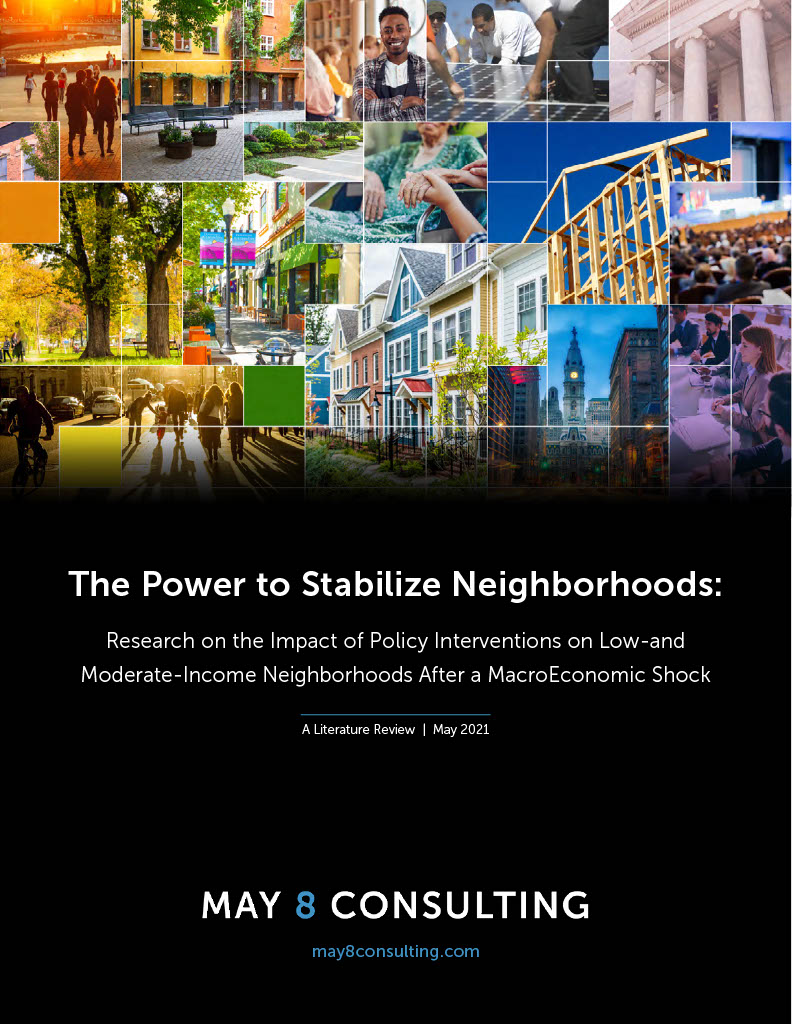Faced with the destabilizing impact of a global economic crisis (such as the recent Covid-19 economic shutdown), local governments and their partners often turn to a standard set of policy interventions to stabilize low- income and middle neighborhoods. While governments and philanthropy spend billions of dollars each year on tools such as code enforcement, vacant property remediation, and foreclosure mitigation, practitioners often have very little information about what actually works. This literature review summarizes the existing research about the effectiveness of certain policy interventions to help stabilize low- and moderate-income neighborhoods after a macroeconomic shock. This document is designed to help practitioners design and implement evidence-based neighborhood stabilization and revitalization policies.
The following interventions are explored:
* Code Enforcement
* Counseling for Foreclosure Prevention
* Demolition of Residential Distressed Properties
* First Look Programs
* Foreclosure Mitigation Programs
* Greening Vacant Lots
* Land Banks and Alternatives to Tax Sale Auctions
* Multi-Pronged Investment Strategies
* Scattered Site Single-Family Housing Rehabilitation
* Significant Targeted Neighborhood Investment
* Access to Credit
* Community Land Trusts
* Sideyard Purchase Program
* Tax Policies
